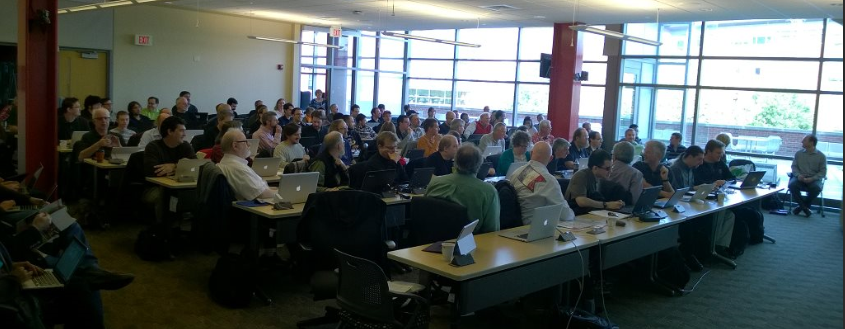N4340: Remove Deprecated Use of the register Keyword -- Alisdair Meredith
New WG21 papers are available. If you are not a committee member, please use the comments section below or the std-proposals forum for public discussion.
Document number: N4340
Date: 2014-11-26
Remove Deprecated Use of the register Keyword
by Alisdair Meredith
Excerpt:
The
registerkeyword was deprecated in the 2011 C++ standard, as its effect was already implicit in the language. It remains reserved for future use by the standard, and is time to remove its vestigial specification.

 CppCat
CppCat Some more details about the Ranges proposal that was well received by the ISO C++ committee at this month's meeting in Urbana-Champaign:
Some more details about the Ranges proposal that was well received by the ISO C++ committee at this month's meeting in Urbana-Champaign: In case you missed it:
In case you missed it: [Updated 11/24 to add a few more details]
[Updated 11/24 to add a few more details]